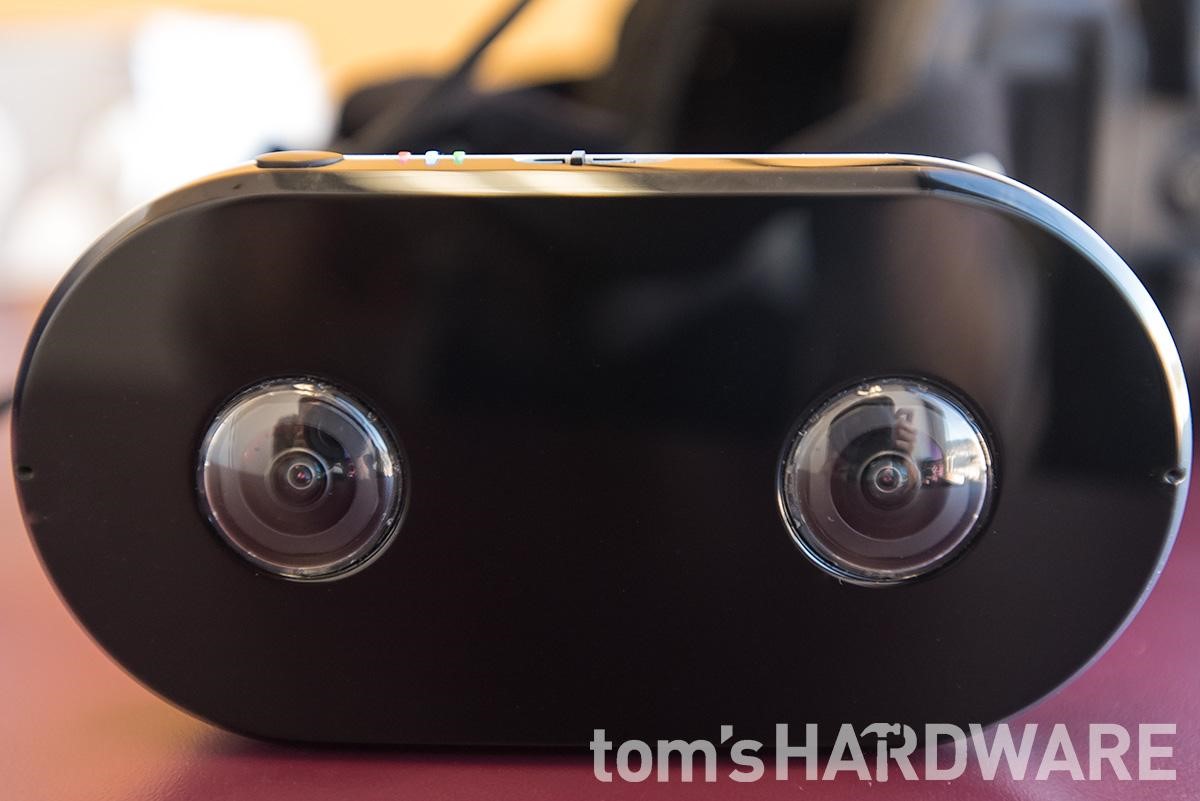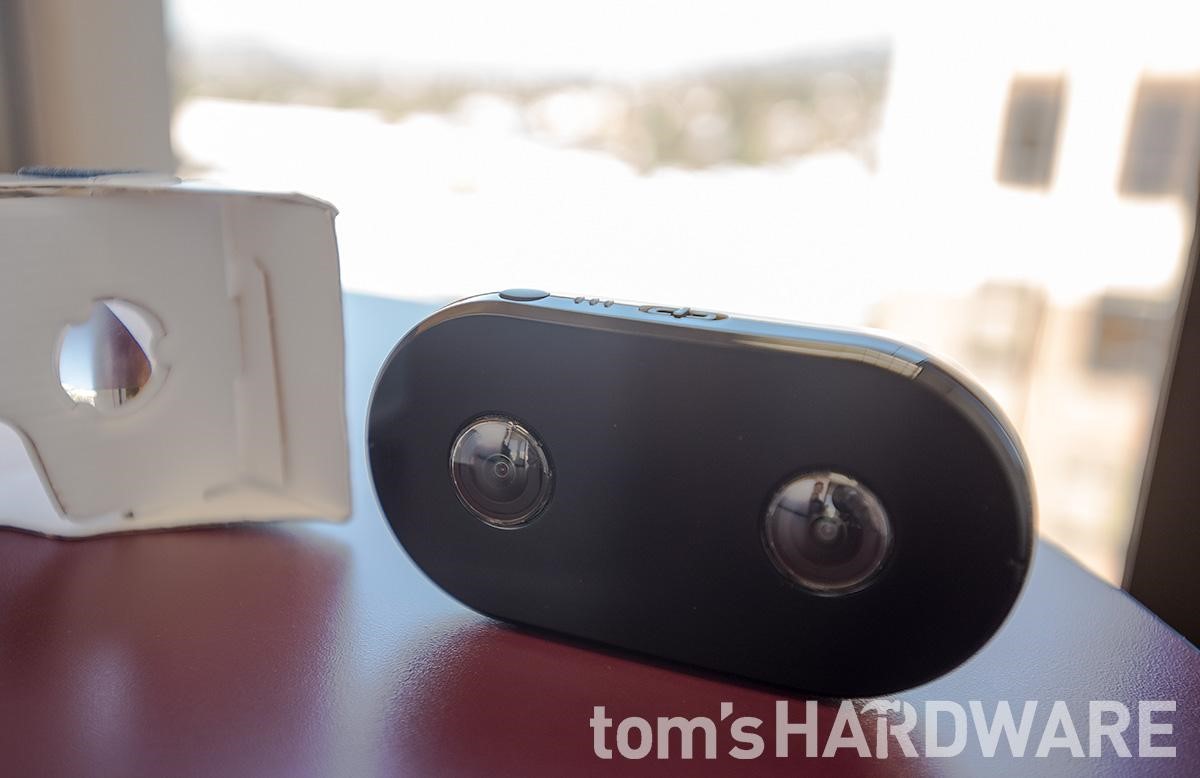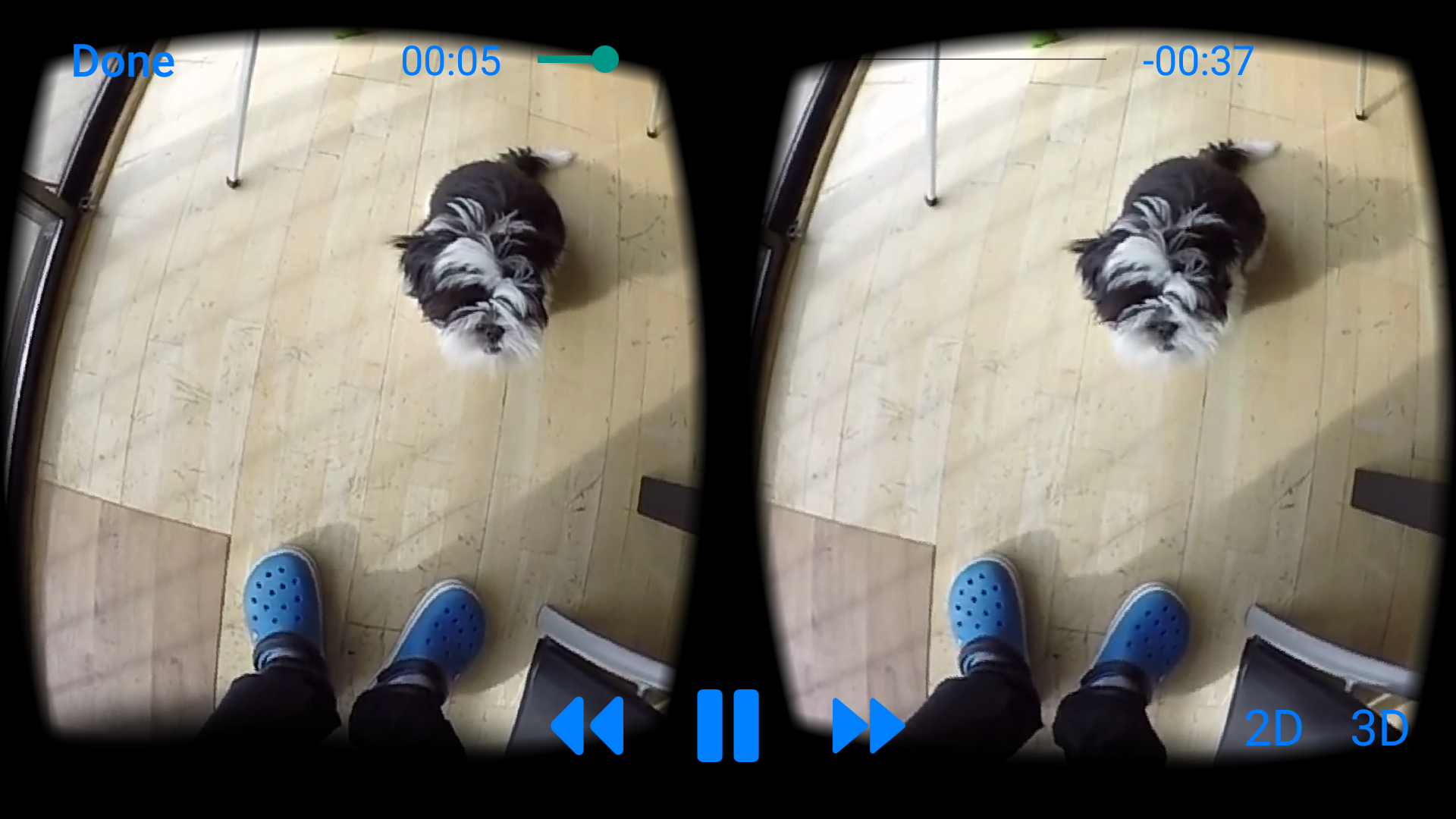Lucid VR Looks To Create The 'Second Wave' VR Camera Market
Get Tom's Hardware's best news and in-depth reviews, straight to your inbox.
You are now subscribed
Your newsletter sign-up was successful
We’ve written before about the second wave of VR/AR coming on the heels of the releases of the first two high-end VR HMDs, and companies such as Lucid VR that make 3D/360/VR cameras are looking to catch it. Although there’s surely a market there waiting to be tapped, it’s all so new that the early players have to work to establish it.
Step One: Create The Market
This is where Lucid VR comes in with an announcement that it’s launching its own production house called Lucid Studios. On the surface, it’s a bit of a surprise announcement from the young company; so far, Lucid makes a consumer-grade 3D/180x180 camera and software to go with it. Now it’s in the professional VR content creation business?
From the perspective of Lucid VR CEO Han Jin (picured at right), though, it all makes sense. For one thing, he sees VR/AR content creation as a vertical market, at present, so it follows that the company would add services in its vertical. Further, what Jin (and others making similar devices) I’ve spoken have realized is that they can’t win market share where there is no market.
In other words, they saw an opportunity--VR/AR is suddenly a Thing, and people want to start creating their own content--but they’re all too early.
What’s tricky about this “second wave” business is that because there are so few players, relatively speaking, it’s almost counterproductive to specialize at this point. For example, you can make a 3D VR camera, but you can’t just make a 3D VR camera. A strong-enough ecosystem doesn’t yet exist, so you have to alsomake editing software (the easier to use the better), and, in Lucid VR’s case, even though you’re trying to sell content-creation devices to consumers, you may want to just to make some of the content yourself.
The other wrinkle there is that few know how to actually make VR content, even with an easy-to-use device like the LucidCam that does onboard stitching.
Step Two: ???; Step Three: Profit
Get Tom's Hardware's best news and in-depth reviews, straight to your inbox.
In the end, Lucid VR, like every other company, wants to generate profits, and it believes it can acquire a strong hold in this burgeoning market by establishing itself early on. The problem is in Step Two; what kind of company is Lucid VR? Is it a hardware company? Software company? Production house?
The current answer to all of those questions is “maybe...sort of.” And that is a tricky place for a company to find itself. In speaking with Lucid VR's Jin, though, you’ll find someone who is not casting about, desperately trying to find a direction for his company that will pay off. What he’s doing is developing contingency plans, in a way. Lucid VR might become a hardware company, or a software company, or a studio, or some combination thereof.
That’s not a lack of vision; in fact, it’s quite the opposite. The way forward is unclear, and so Jin is preparing to move in any direction the company must go--a direction that will reveal itself only over the course of time and via Lucid VR’s interactions with its clients.
It is entirely possible--and Jin is not the first VR/AR camera-making CEO to tell me this--that the hardware part of the equation may become a commodity. That is, there may be a swathe of cameras hitting the market that are all more or less equal, and possibly rather inexpensive. The editing software, where much of the hard work of stitching and cleaning up is performed, may be where the money’s at, as it were. Or perhaps offering editing production services is the way to go, and part of that may be offering content creation services, too.
Getting to that point--overcoming the huge question marks in Step Two--is going to be difficult, but Lucid VR is finding its way through, starting with the launch of Lucid Studios.
On Hardware, Temperance
There’s a potential glaring problem with Lucid VR’s hardware; although the LucidCam is one of the few 3D VR cameras coming to market shortly, its capabilities do not jibe with professional cinematic and advertising-level content. It’s designed for consumer use, and you can’t film a VR experience with a $399 camera and expect professional results (necessarily).
Therefore, unless Lucid VR has a higher-end camera up its sleeve or is planning to let clients bring them footage captured with other cameras, the company will be severely limited in what it can offer as a production house.
Jin has a plan for that. He allowed that Lucid VR would potentially take on footage from non-LucidCam devices, but he also noted that there’s a limit. For example, LucidCam has two cameras that require minimal stitching to make the images match. So if you brought footage that needed similarly minimal stitching, like the Ricoh Theta, Lucid VR could work with that, but the six-camera GoPro Omni would be too much.
Regarding any new, higher-end, “pro” camera hardware coming from Lucid VR, Jin espoused temperance. For one thing, he pointed out that HMD resolution is a limiting factor; neither the HTC Vive nor the Oculus Rift support 4K resolution at present, for example, so why bother trying to create 4K content today? I pressed the issue with him, though; eventually, HMDs will support 4K content, and 8K content, and so on. What about future proofing the content you make? “Not everything has legs,” he noted.
He used the real estate market as an example. Let’s say you’re selling your house and want to create 3D images of the spaces. You need that content tomorrow, not in two years. That is not content with “legs.” There is, of course, loads of more evergreen material that people will want at the highest resolution possible, so there’s value in building cameras that can deliver.
To that end, Lucid VR is working on a next-gen camera. “Lucid Cam version two will be better [than the current one],” Jin assured me. But instead of going for a super-high-end camera, the company will more likely deliver iterative improvements on the next generation of the Lucid Cam; it may even retain the same price of $399.
In other words, Lucid VR is focusing primarily on the present, and what can be done now and in the next year or so. Because the path is somewhat murky, the company doesn’t want (or necessarily need) to stumble forward too far down any one path just yet.
What Will Lucid Studios Do?
Instead, the Lucid VR team will adjust to the market as they help create it, and this is where Lucid Studios will be so valuable. In the long term, Lucid wants to train people on how to use its camera and software tools, and in doing so, it could stake a market share claim even as the market emerges. In the short term? The company wants to make money.
Lucid VR is up for just about anything. Many companies just want to outsource video work, and Lucid Studios can handle that. (Jin stated that he believes Lucid VR can actually be “disruptive” in that space, with fast turnaround times and rates that are competitive with regular 2D video production.) Some companies will ask for training on editing and producing their own content, and Lucid Studios will be happy to oblige there, as well.
In short, Lucid VR wants to, in Jin’s words, “unburden people from technology they don’t understand.”
If a client wants X, the company will figure out how to produce X. If a client requires Y technology, the company will develop it. Lucid VR is looking at what the industry needs, what it’s asking for, and then offering to create the tool to make it happen.
That is how you build your own market and quickly work towards that elusive third step: profit.
Seth Colaner previously served as News Director at Tom's Hardware. He covered technology news, focusing on keyboards, virtual reality, and wearables.
-
scolaner Reply18406421 said:Sorry, this isnt available yet but looks very interesting as well.
...right. I linked to our coverage of the Vuze in the very first sentence of this article... -
CRIES78 LOL, so true, that's what happens when you don't click on the links. My bad. Very interesting article though.Reply -
scolaner Reply18406489 said:LOL, so true, that's what happens when you don't click on the links. My bad. Very interesting article though.
No worries. ;)




